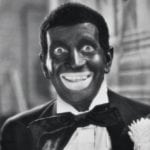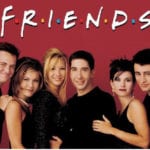 History
History  History
History  History
History 10 “Modern” Problems with Surprising Historical Analogs
 Health
Health 10 Everyday Activities That Secretly Alter Consciousness
 History
History Top 10 Historical Disasters Caused by Someone Calling in Sick
 Animals
Animals 10 New Shark Secrets That Recently Dropped
 Movies and TV
Movies and TV 10 Forgotten Realities of Early Live Television Broadcasts
 Technology
Technology 10 Stopgap Technologies That Became Industry Standards
 Weird Stuff
Weird Stuff 10 Wild Facts About Taxidermy That You Probably Didn’t Know
 Travel
Travel 10 Beautiful Travel Destinations (That Will Kill You)
 Miscellaneous
Miscellaneous 10 Modern Marriage Rituals Born from Corporate Branding
 History
History 10 Extreme Laws That Tried to Engineer Society
 History
History 10 “Modern” Problems with Surprising Historical Analogs
 Health
Health 10 Everyday Activities That Secretly Alter Consciousness
Who's Behind Listverse?

Jamie Frater
Head Editor
Jamie founded Listverse due to an insatiable desire to share fascinating, obscure, and bizarre facts. He has been a guest speaker on numerous national radio and television stations and is a five time published author.
More About Us History
History Top 10 Historical Disasters Caused by Someone Calling in Sick
 Animals
Animals 10 New Shark Secrets That Recently Dropped
 Movies and TV
Movies and TV 10 Forgotten Realities of Early Live Television Broadcasts
 Technology
Technology 10 Stopgap Technologies That Became Industry Standards
 Weird Stuff
Weird Stuff 10 Wild Facts About Taxidermy That You Probably Didn’t Know
 Travel
Travel 10 Beautiful Travel Destinations (That Will Kill You)
 Miscellaneous
Miscellaneous 10 Modern Marriage Rituals Born from Corporate Branding
Top 10 Borderline Offensive SNL Characters
“Saturday Night Live” is an institution. Not just in comedy, but in all of entertainment. The show is now nearer to fifty than not, and over those many years has showcased wave after wave of comedy’s best, from Bill Murray through Will Ferrell to Kate McKinnon. Altogether, the prodigious cast has produced thousands of original characters, many of them, cultural icons. But among those, a few are a bit iffy in terms of taste.
Decades of constantly evolving culture have rendered some of “SNL”‘s most famous characters dated, obsolete, or even downright offensive. That’s not to say that they aren’t funny or that they shouldn’t have been on the air, just that it can be eye-opening looking back on our changing etiquette. To that end, here are ten of the most borderline—and actually offensive—characters to appear on “Saturday Night Live.”
10 The Samurai
Comedy was easier in the 70s. One racist caricature, and you’ve got a recurring hit sketch. No late nights for that writing team, just a quick assemblage of phony Japanese-sounding mumble-screams, and the whole crew is home by four. The ticket to Easy Street in question is John Belushi’s character, the Samurai.
The Samurai would appear with a new occupation every time—sometimes a hitman, hotel owner, or disco dancer—but always the lowest common denominator in humor. The entire premise was that a medieval-era samurai was somehow in the current era and had found a new occupation. That’s it. Belushi gave his all to the role physically, as usual, but he had virtually no dialogue to work with. Everything he ‘said’ was just racist phonetic aping of Japanese. Eventually, every sketch would fizzle out until it ended, with no structure or thought, just five minutes of a funny accent and indignity.
9 The Continental
Christopher Walken has hosted “SNL” seven times, enough to have developed his own recurring character. That character, a vaguely ethnic, hapless dilettante named the Continental, is also an endless fountain of #metoo fuel.
Every Continental sketch starts with the character fumbling his way through a date at his luxurious suite until that woman decides to escape. Apparently, his constant allusions to stalking her, drugging her, and even chloroforming her somehow sours her grapes. But when she moves to leave, the Continental inevitably blocks her exit, forcing her to stay, even going so far as to lock her in and try to swallow the key. Worst of all, the camera acts as the woman’s eyes, putting us all in the action as a sleazy old pervert tries to molest us.
8 The D-ck in a Box Dudes
Speaking of creepy grown men, there’s “D-ck in a Box.” One of Lonely Island’s biggest hits, the song “D-ck in A Box” featuring Justin Timberlake, is still a popular rewatch and singalong. But in addition to being catchy and fun, it’s also rapey and gross.
The concept behind “D-ck in a Box” is a simple question: How do you trick a woman into seeing your penis? It has been asked before, often answered with a flung-open trench coat. But it was always hindered by those pesky labels like ‘flashing’ and ‘indecent exposure’ and ‘non-consensual.’ Finally our brave heroes found the solution: hide your penis in a box and give it to a woman who is expecting a nice gift. That way she can be doubly disappointed.
7 Stefon
Bill Hader’s Stefon was probably the best recurring “SNL” character of the last couple of decades. The pop that Seth Meyers would elicit upon cueing up the guest character was unparalleled. But as funny as the character was, it was just as problematic in many ways.
For one, like so many other “SNL” characters over the years, his stereotypical homosexuality made him a constant punchline. For another, Stefon used the term midget in almost every appearance, despite the facts that 1.) that hadn’t been the appropriate term for a decade before he first used it, and 2.) even within the narrative, Meyers repeatedly told Stefon that the word was offensive, which Stefon ignored. At one point, Stefon heeded Meyers’s advice, correcting midget to ‘fun-sized.’ Stefon also had a running storyline in which he tried to seduce Meyers, built entirely on the premise that “no” means “yes.”
6 Stuart Smalley
Unlike Stefon, whose homosexuality was just one piece of the bit, Stuart Smalley was gay—and that was really the whole joke. Well, that and the fact that Smalley’s father was an alcoholic (haha?). But he only drank because his son was gay, so we’re back to comedic square one.
Smalley, played by future (and now past) senator Al Franken, spoke in a stereotypical lisp, wore Malibu Ken outfits, and was in touch with his feelings. In the 90s, that was enough to make him an evergreen gag. In one sketch, he talks about his father beating him and his mother, and because Smalley was too effeminate to stop the assault, it’s (theoretically) funny.
5 Pat
When people see an old sketch and react with, “man, that wouldn’t fly today!” there is a solid 50% chance it was a Pat sketch. Played by the criminally underrated Julia Sweeney, Pat’s whole deal was—nay, every aspect of their entire existence was—based around the fact that Pat presented as equal-parts man and woman.
Pat had an androgynous name, dated others with androgynous names, wore androgynous clothes, had androgynous habits, etc. The joke was predicated on the outdated notion that only two genders were unwaveringly defined and completely immiscible. In the real world, even in the 90s, people aren’t split 50/50 between football-lumberjacks and ballerina-princesses, but no one in Pat’s world seemed to know that. At least the sketch had a fun game built in where the supporting cast slyly tried to coax information out of Pat that would confirm their gender. That at least beats the Samurai, who just kind of… samurai-ed.
4 Governor David Paterson
There are a few characters on this list whose entire bits are one-dimensional and offensive—the Samurai, Stuart Smalley, Pat, and as we’ll get to, the Ambiguously Gay Duo. But there’s only one character who can boast the hat-trick of being one-dimensional, offensive, and an actual person. That’s Governor David Paterson, as played by Fred Armisen.
Paterson was the actual governor of New York State in the late aughts and was legally blind. For “SNL,” this was a goldmine and they routinely dug into that mine for sweet, sweet disability jokes. Paterson would bump into furniture, use binoculars to read, and stumble in front of the camera, unawares. At least Armisen got to flex his superb space-work.
3 The Word Association Guy
This sketch aired in “SNL”‘s first season and starred Chevy Chase as a man conducting a job interview for potential hire Richard Pryor. Chase and Pryor begin a word association game as a test, which escalates quickly.
The pair exchange racial slurs until Chase throws out a full, uncensored n-word on primetime, network television. The sketch is quick, simple, funny, and feels punk rock and dangerous in the spirit of those early years. It has become a historic television moment, despite—or rather because—it went farther than any sketch has dared before or after.
2 The Ambiguously Gay Duo
After Stefon and Smalley, we round out the ‘gay people are funny’ trilogy with one the most offensive recurring “SNL” sketch ever: The Ambiguously Gay duo. The sketch was an all-star exhibition, created by Robert Smigel and voiced by Stephen Colbert and Steve Carell as the titular duo, a pair of muscular male superheroes who seemed completely unaware of their homoerotic behavior.
In an obvious parody of early Batman and Robin, the pair spouted endless catchphrases that were equal parts enthusiastic and inane. The twist was that the phrases and all the superhero moves they accompanied were clearly gay.
The duo drove a penis-shaped car, flew by mounting each other, dodged bullets by doing ballet, and defeated evil by putting any number of penis-shaped objects in an equal number of butt-shaped objects. The joke was that they had no idea how it all looked, and as offensive as it all is, the jokes still hold up today.
1 Canteen Boy
Even after all that, there is a clear winner: Canteen Boy. Though most Canteen Boy appearances were offensive due to their consistent mocking of the mentally challenged (despite what the disclaimer claimed), one sketch went a whole lot further. It is offensive enough to not exist on YouTube at all, save for mentions by third parties. The sketch in question is when Alec Baldwin led Canteen Boy’s scout troop and naturally… tried to molest him.
Baldwin spends a night in the woods with Canteen Boy and tries his damndest to seduce him, mental disability or no. He takes his own shirt off, tries to get Canteen Boy drunk, forces the scout into his own sleeping bag, nuzzles him, and even sucks his finger. The sketch was topical, as accusations about scout leader sexual assaults were common at the time. That made the sketch even more offensive to victims and their families. And no matter when it airs, jokes about molesting the mentally challenged are justifiably bound to raise a few hackles.








